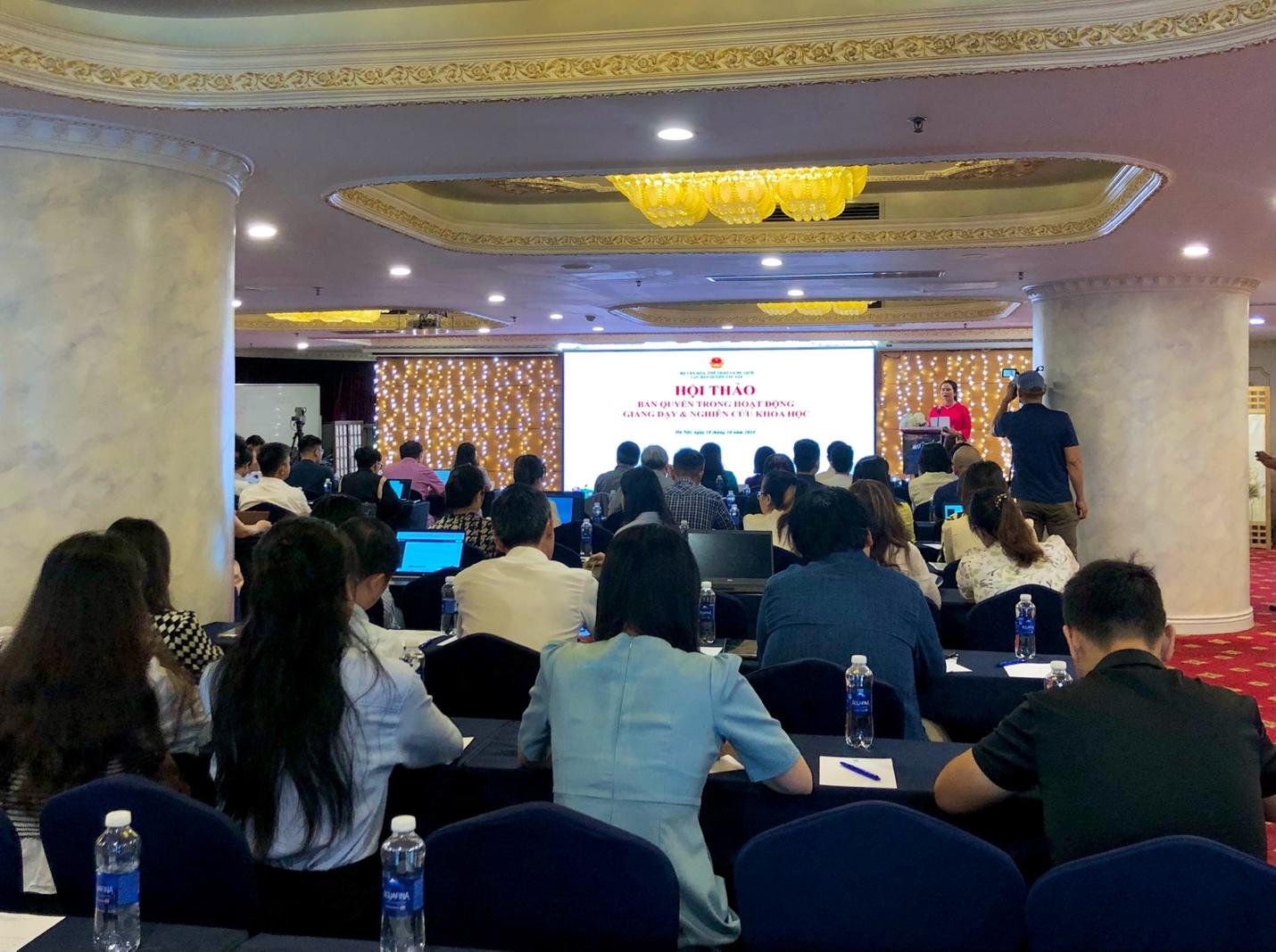
Overview of the Workshop
In her opening speech at the workshop, Ms. Pham Thi Kim Oanh emphasized: Intellectual property rights in general, copyright and related rights in particular, are increasingly being raised in all economic, commercial, research and educational activities. In the process of international economic integration, in all international trade forums, copyright issues are being raised very hotly, receiving special attention from developed countries as well as developing countries.
Vietnam has been proactively and actively integrating internationally, including in the field of copyright and related rights. To date, Vietnam has participated in 8 out of 9 multilateral international treaties on copyright and related rights; negotiated and signed 02 bilateral agreements and 17 bilateral and multilateral economic and free trade agreements with different countries and economic regions in the world with content on copyright and related rights. Signing and participating in international treaties and trade agreements has brought Vietnam to an equal and mutually beneficial position with countries with developed copyright industries. However, there are still many issues that need to be discussed, debated, and solutions proposed to improve the legal system on copyright and related rights to be more and more progressive, to encourage creativity, to ensure transparency and high reliability, to protect copyright and related rights and to effectively enforce teaching and scientific research activities, in creating and disseminating knowledge.
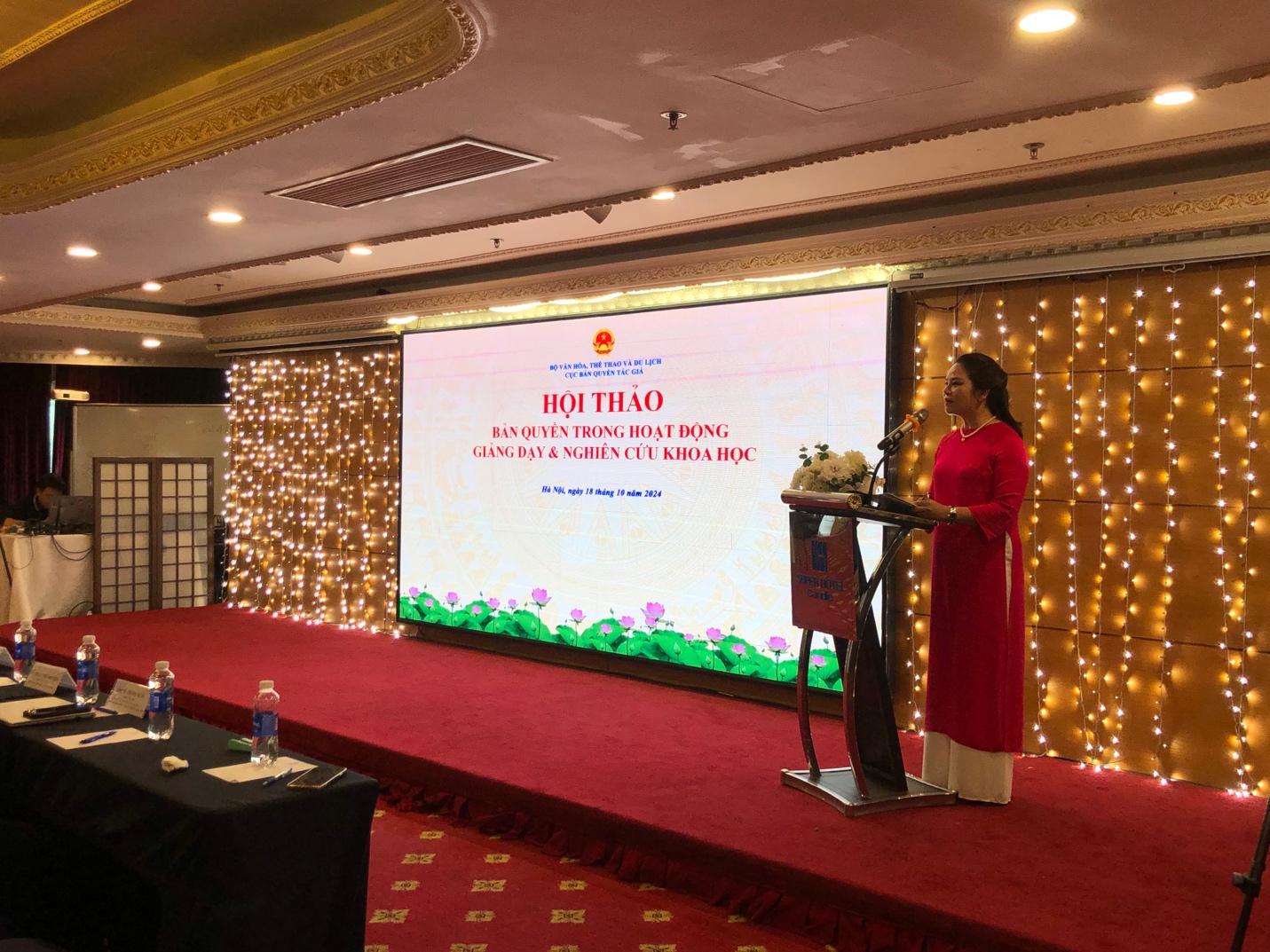
Ms. Pham Thi Kim Oanh, Deputy Director of the Copyright Office, delivered the opening speech and introductory report of the workshop.
With the purpose of organizing to consult experts, scientists, lecturers in the field of copyright and related fields on the current status of legal regulations, the implementation of legal regulations on copyright and related rights in Vietnam, the workshop received 16 reports from experts, scientists from universities, research organizations and companies, law offices operating in the field of copyright and related rights.
The reports focused on clarifying the current situation as well as proposing many solutions to improve the law as well as measures to implement legal regulations on exceptions to copyright infringement in general, in teaching and scientific research activities in particular; the management and exploitation of intellectual property in educational, training and scientific research institutions.
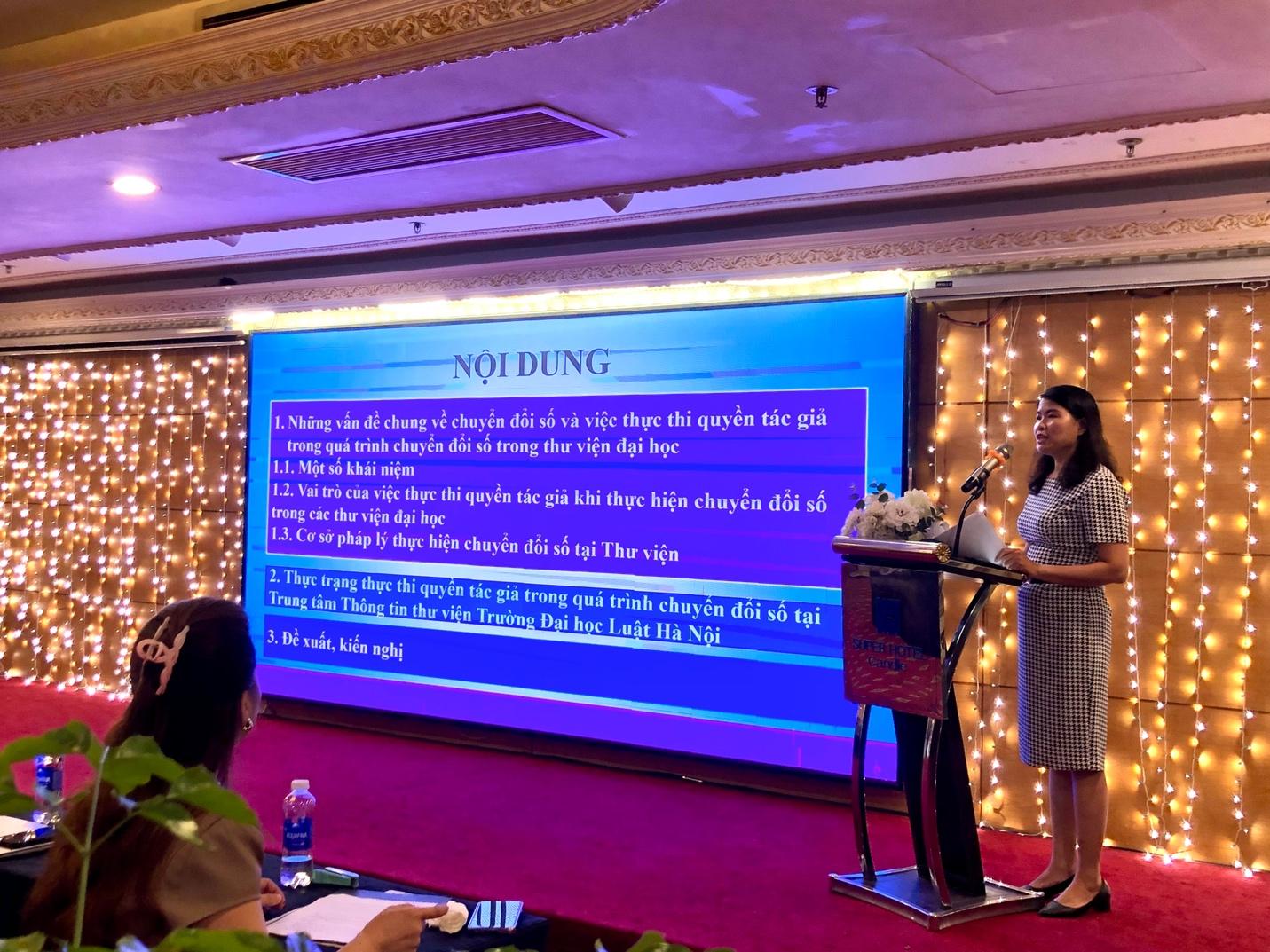
Delegates reported at the conference.
Opening the discussion session, MSc. Pham Thi Mai, Deputy Director of the Library Information Center, Hanoi Law University, made a number of proposals and recommendations as follows: Firstly, continue to improve regulations and detailed instructions for the force working on copyright enforcement. Secondly, continue to raise awareness of the role of implementing legal regulations related to digital transformation in the library sector. Thirdly, the University and the Center for Information Technology and Library should implement preventive measures to ensure that the library server system is not attacked; strengthen the protection of devices and personal accounts when using digital information resources.
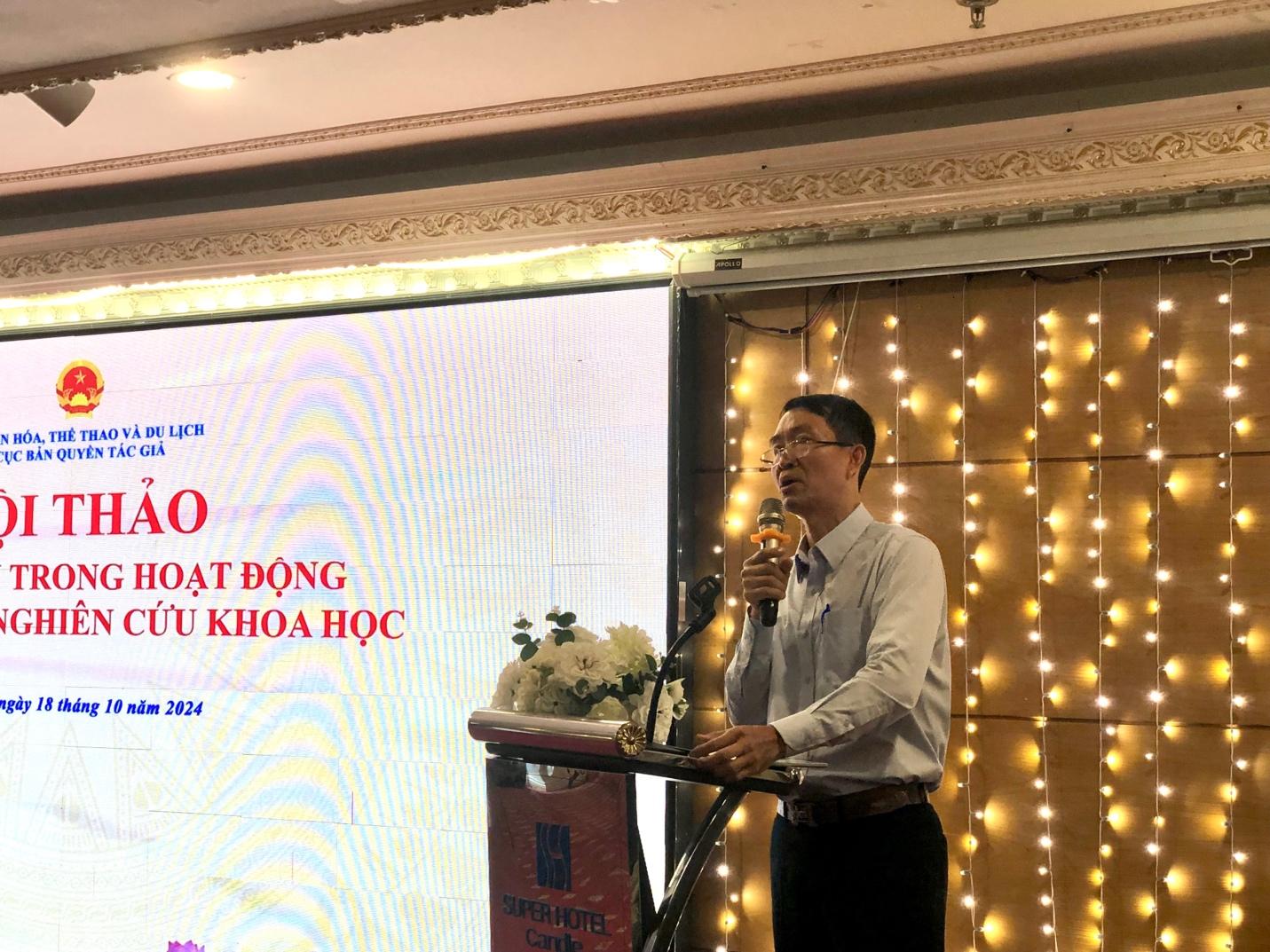
Delegates reported at the conference.
MSc. Tran Quang Trung, Deputy Dean of the Faculty of Law, Duy Tan University, Da Nang, added some recommendations: It is necessary to perfect the law to be clearer, avoid ambiguous regulations that lead to contradictory interpretations, and at the same time, the law needs to expand the right to copy in some specific cases. According to him, scientific products that use part or all of the state budget should have the limitations on copyright narrowed, and the right to access and use by the public should be expanded if they are not for commercial purposes, such as studying and researching by students/trainees, showing the effectiveness and legitimacy of public investment projects.
In addition, Master Tran Quang Trung also gave his opinion on considering the construction and separation of copyright from intellectual property rights to have clear regulations and avoid confusion.
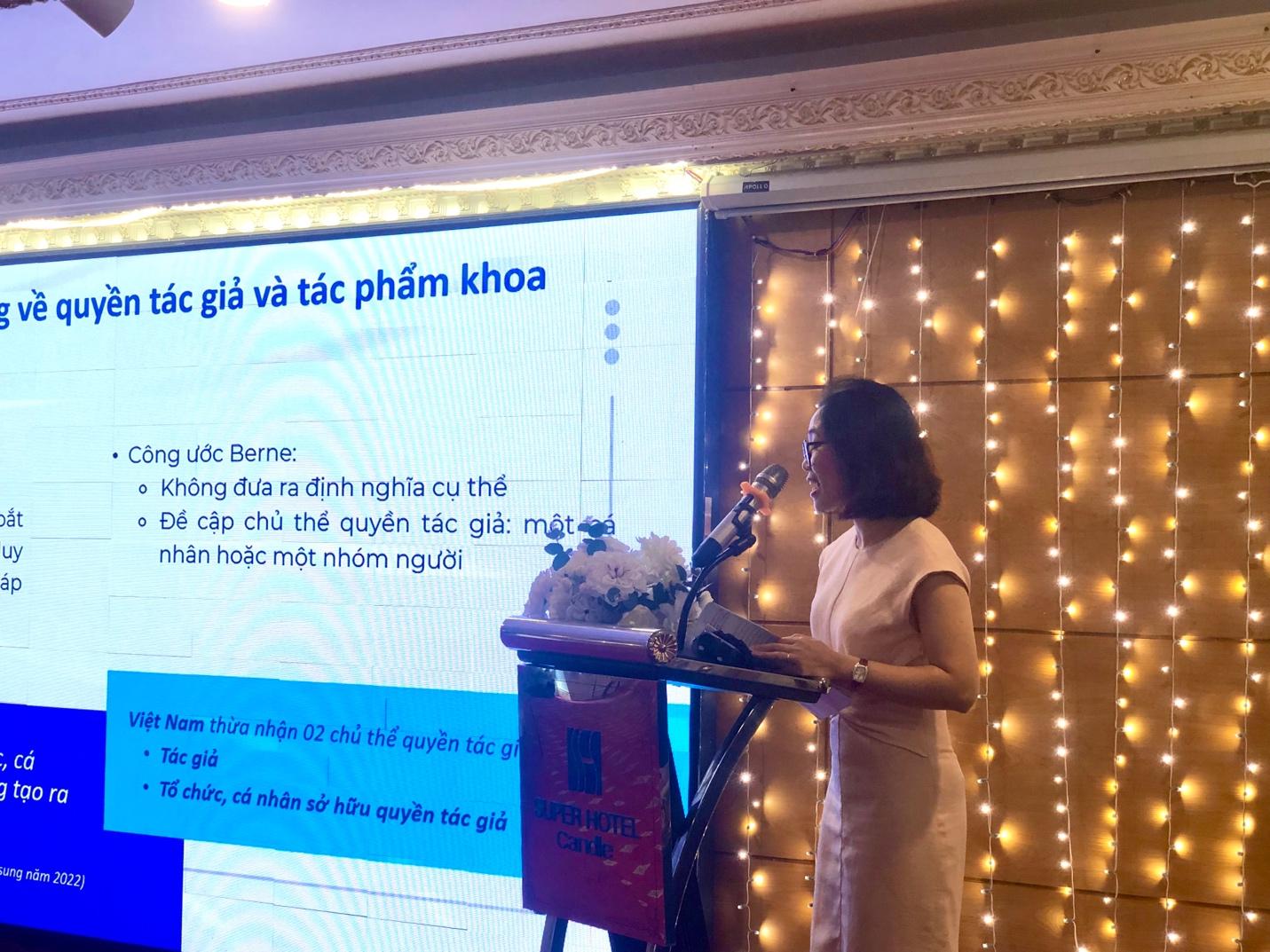
Delegates reported at the conference.
Presenting some experiences for Vietnam through analyzing the Law on copyright protection for scientific works of some countries such as the UK or the US, Dr. Phung Thi Yen, Faculty of Law, Foreign Trade University, Hanoi, made some recommendations as follows: In order to respond to the development trend of digital technology, Vietnam should consider including and recognizing the element of artificial intelligence (AI), specifically in the classification of works on computer programs, works that create AI should also be recognized to demonstrate the progressive development trend of the law. In addition, Vietnam can refer to the provisions of CDPA 1988 on the issue of ownership of works created during the labor process to amend and supplement in a more strict, progressive, and comprehensive direction on the issue of determining the author and copyright owner of the work. Finally, general guidance should be given on the specific extent of fair use of scientific works in terms of copyright protection.
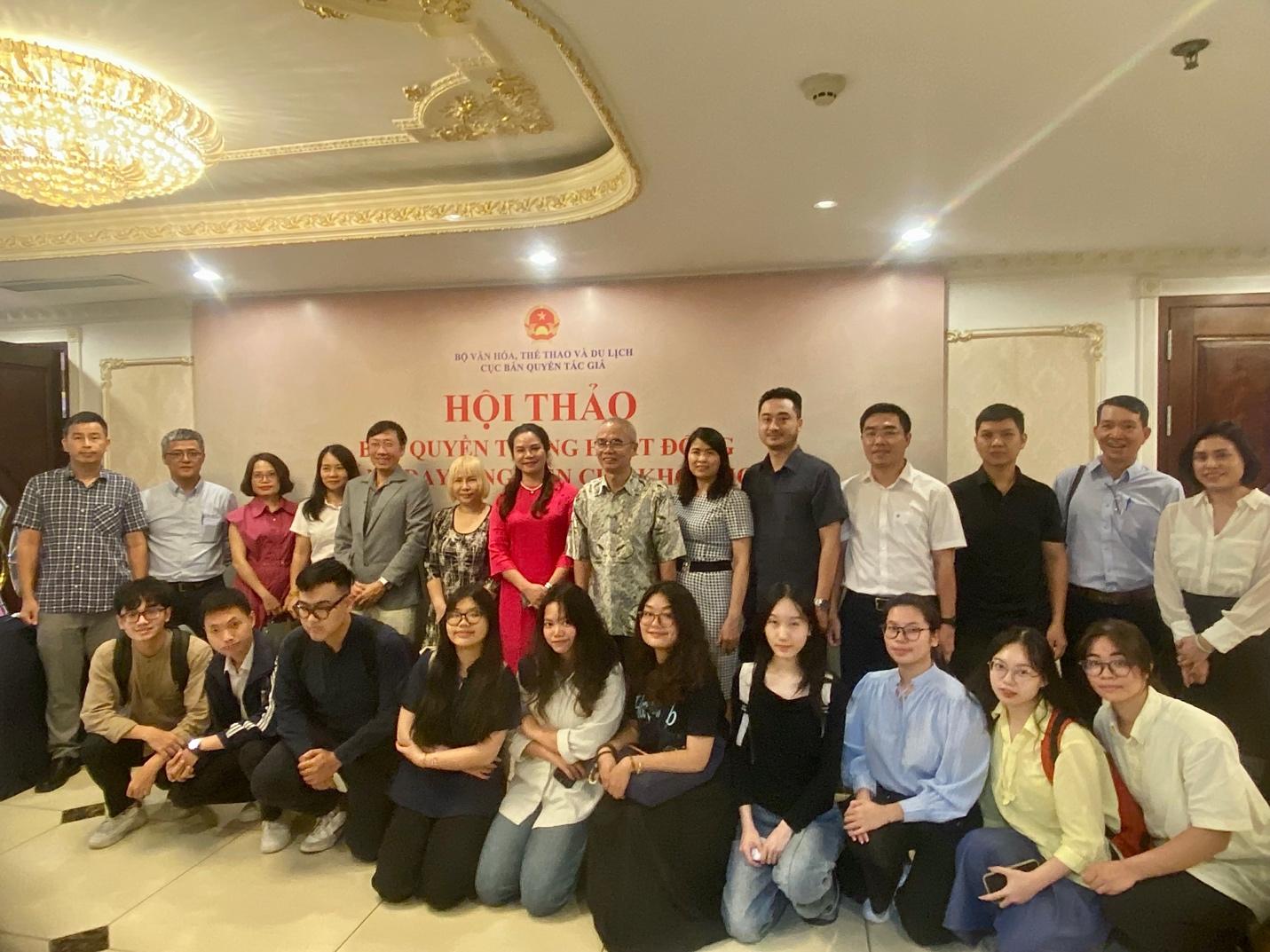
Delegates attending the conference took a souvenir photo
Through the Workshop, the Copyright Office received many positive comments to continue researching and proposing to improve the law on copyright and related rights in the coming time./.
Source: https://toquoc.vn/hoi-thao-ve-ban-quyen-trong-hoat-dong-giang-day-va-nghien-cuu-khoa-hoc-nang-cao-va-thuc-day-hoan-thien-quyen-tac-gia-20241018183739803.htm


![[Photo] A brief moment of rest for the rescue force of the Vietnam People's Army](https://vstatic.vietnam.vn/vietnam/resource/IMAGE/2025/4/3/a2c91fa05dc04293a4b64cfd27ed4dbe)

![[Photo] Prime Minister Pham Minh Chinh chairs meeting after US announces reciprocal tariffs](https://vstatic.vietnam.vn/vietnam/resource/IMAGE/2025/4/3/ee90a2786c0a45d7868de039cef4a712)
![[Photo] General Secretary To Lam receives Japanese Ambassador to Vietnam Ito Naoki](https://vstatic.vietnam.vn/vietnam/resource/IMAGE/2025/4/3/3a5d233bc09d4928ac9bfed97674be98)
![[Photo] Ho Chi Minh City speeds up sidewalk repair work before April 30 holiday](https://vstatic.vietnam.vn/vietnam/resource/IMAGE/2025/4/3/17f78833a36f4ba5a9bae215703da710)
![[Photo] Prime Minister Pham Minh Chinh chairs the first meeting of the Steering Committee on Regional and International Financial Centers](https://vstatic.vietnam.vn/vietnam/resource/IMAGE/2025/4/3/47dc687989d4479d95a1dce4466edd32)
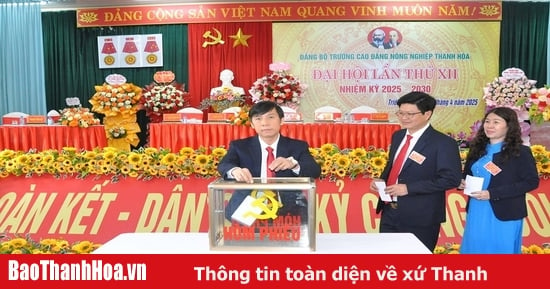

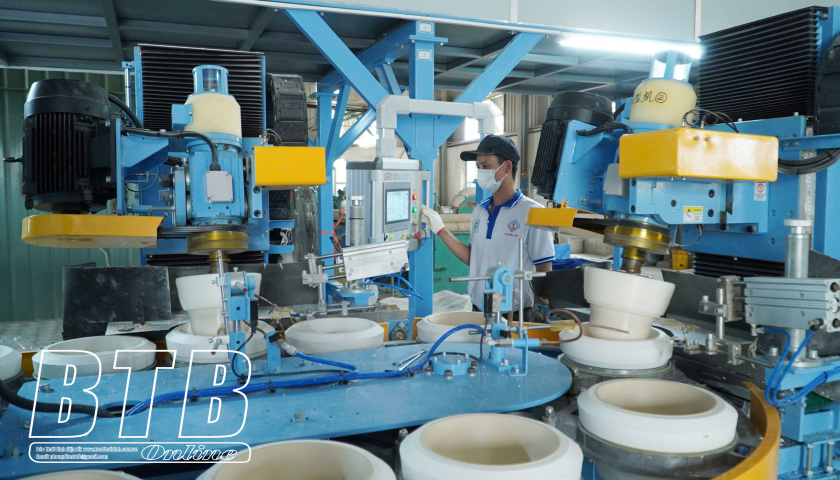

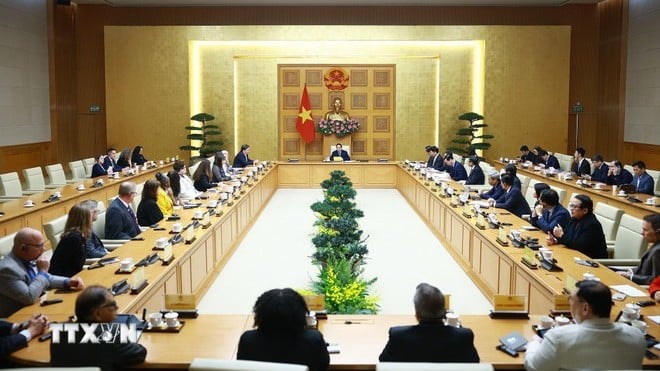

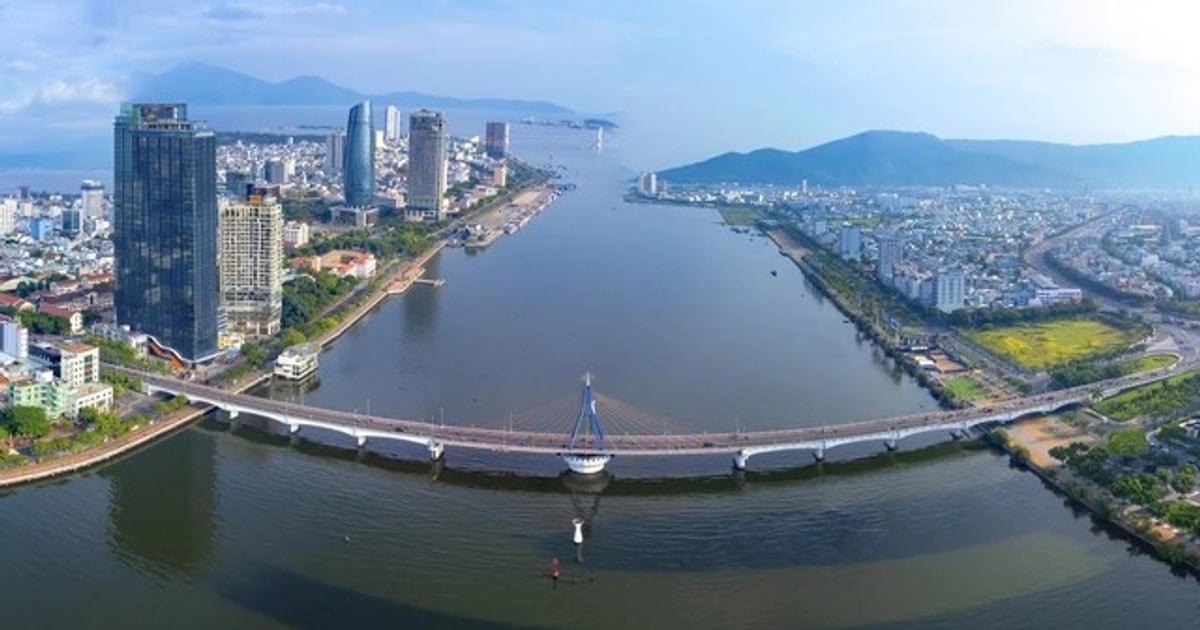
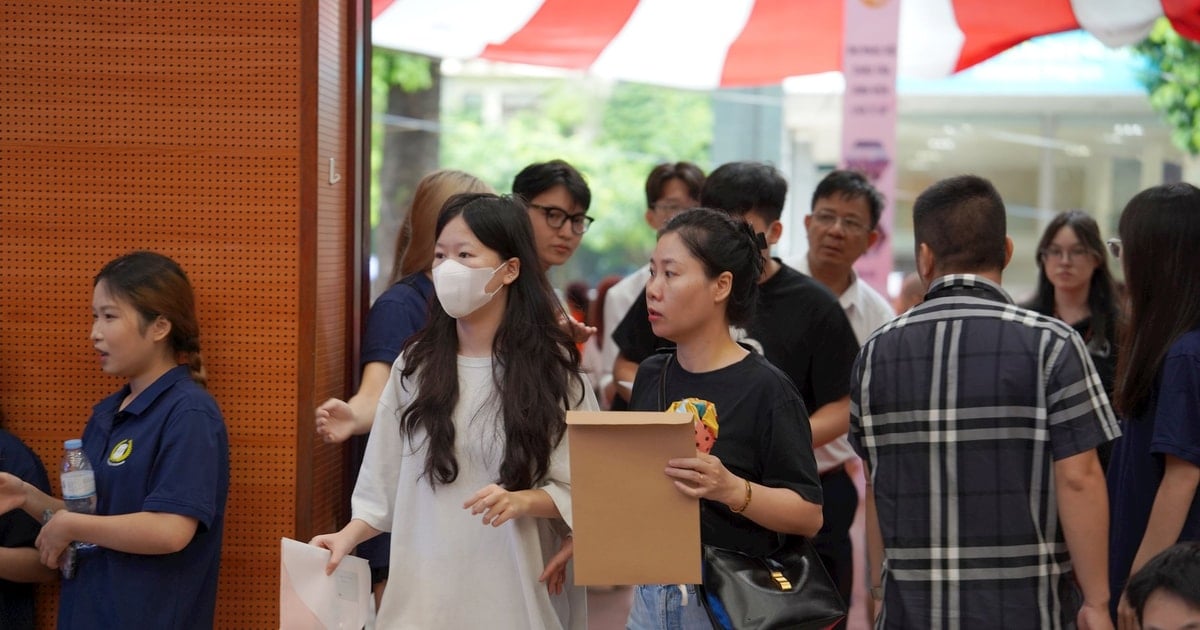

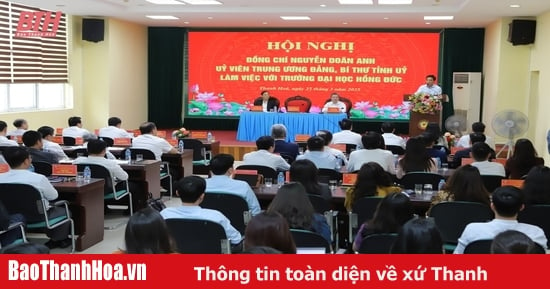
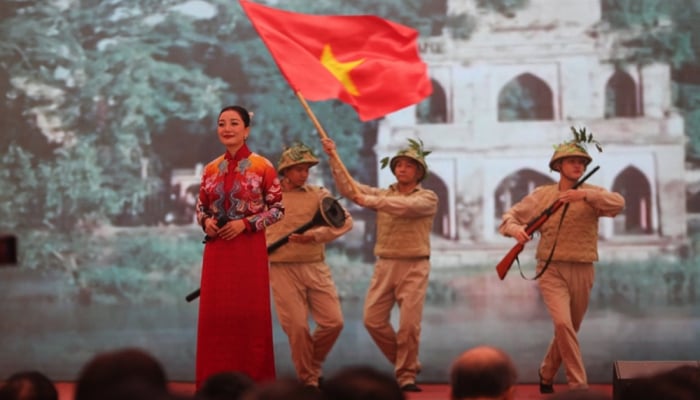
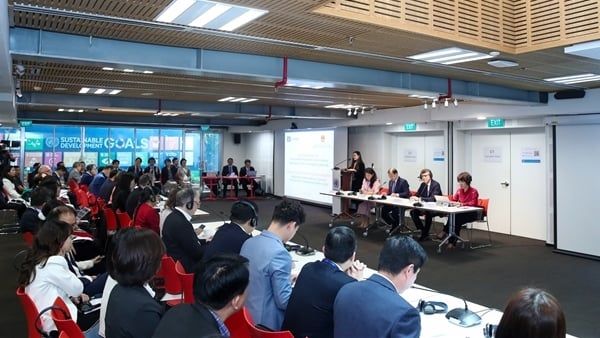
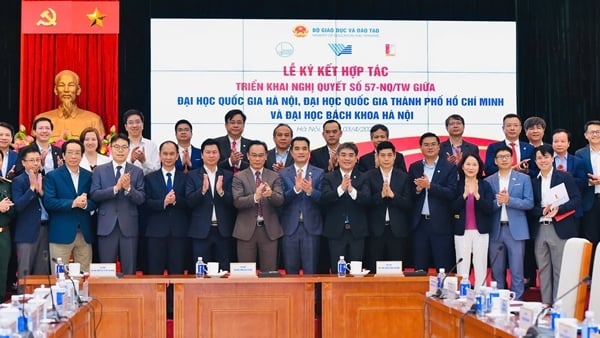
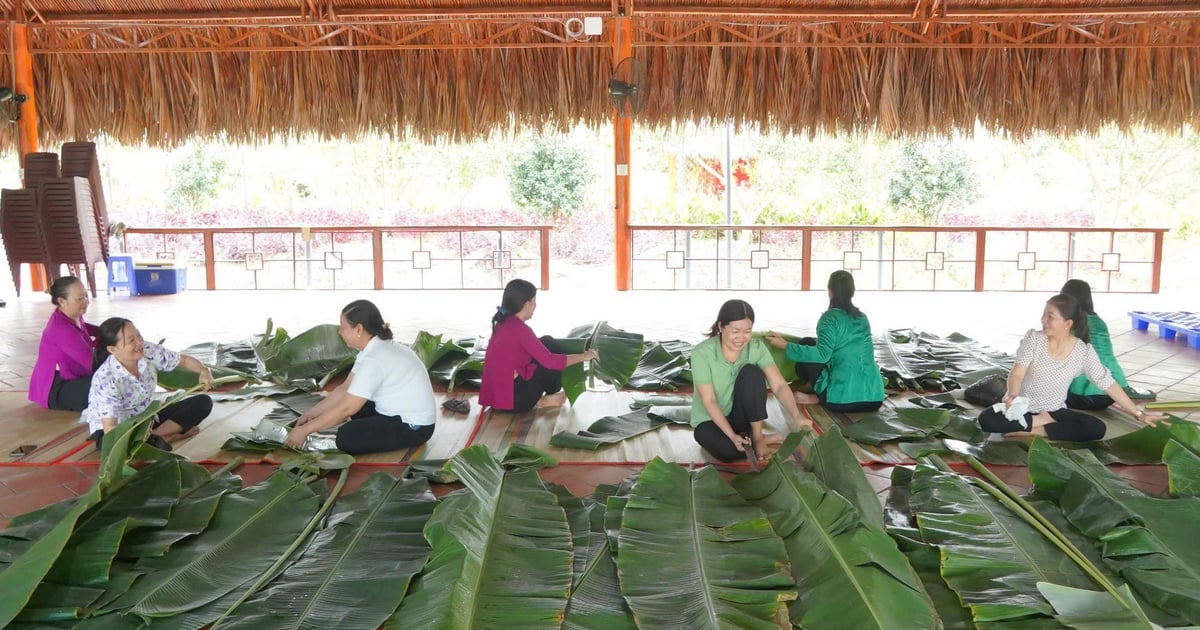
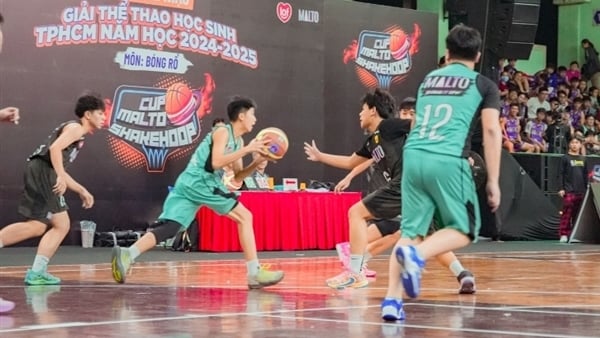
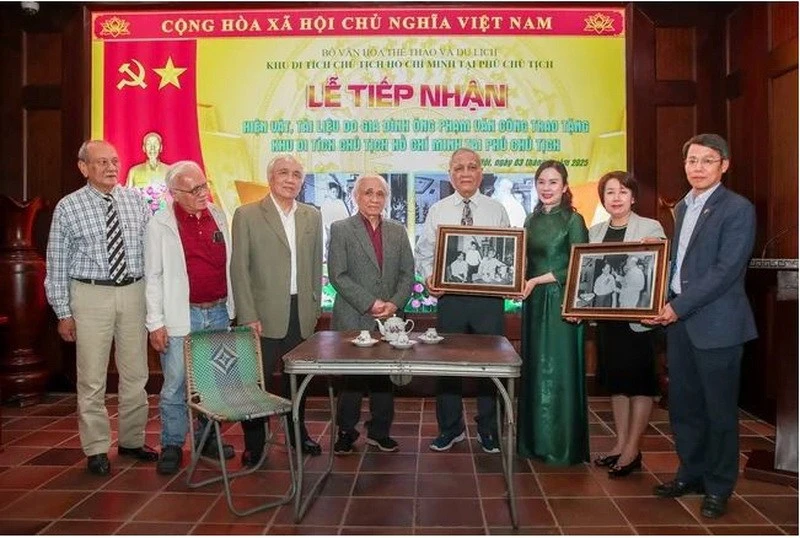





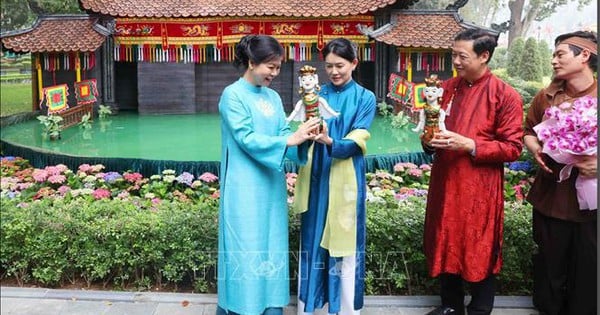
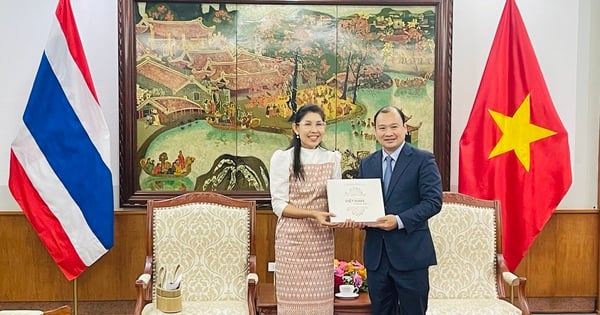
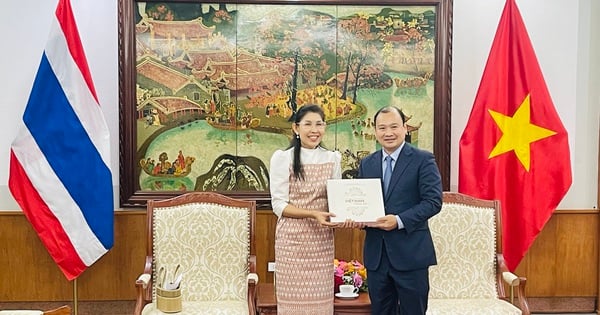
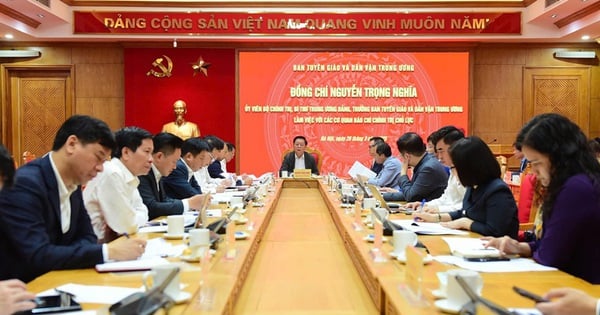










































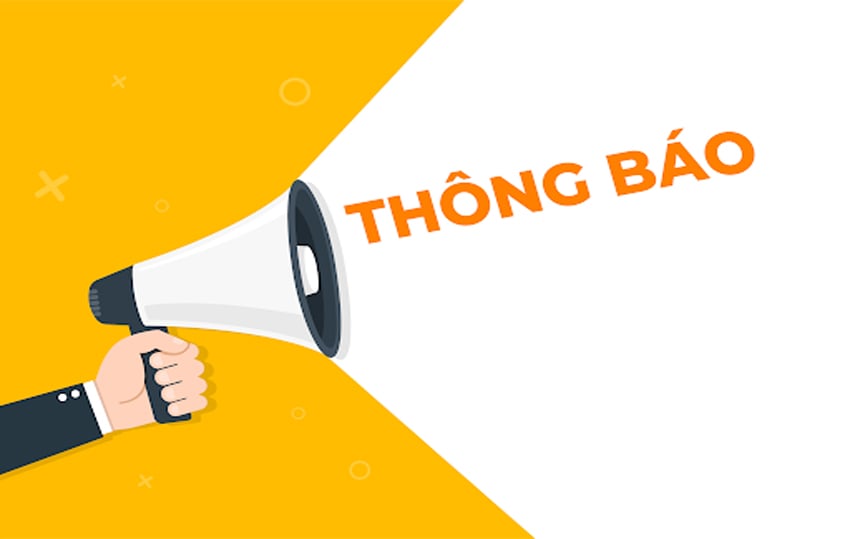

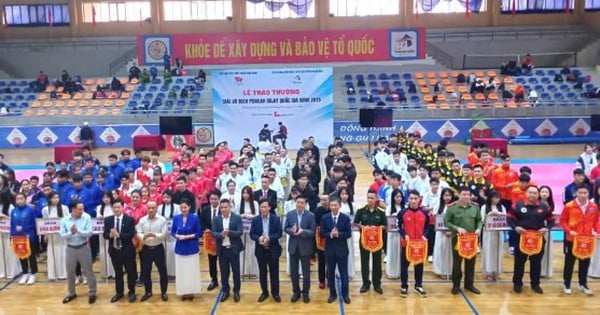
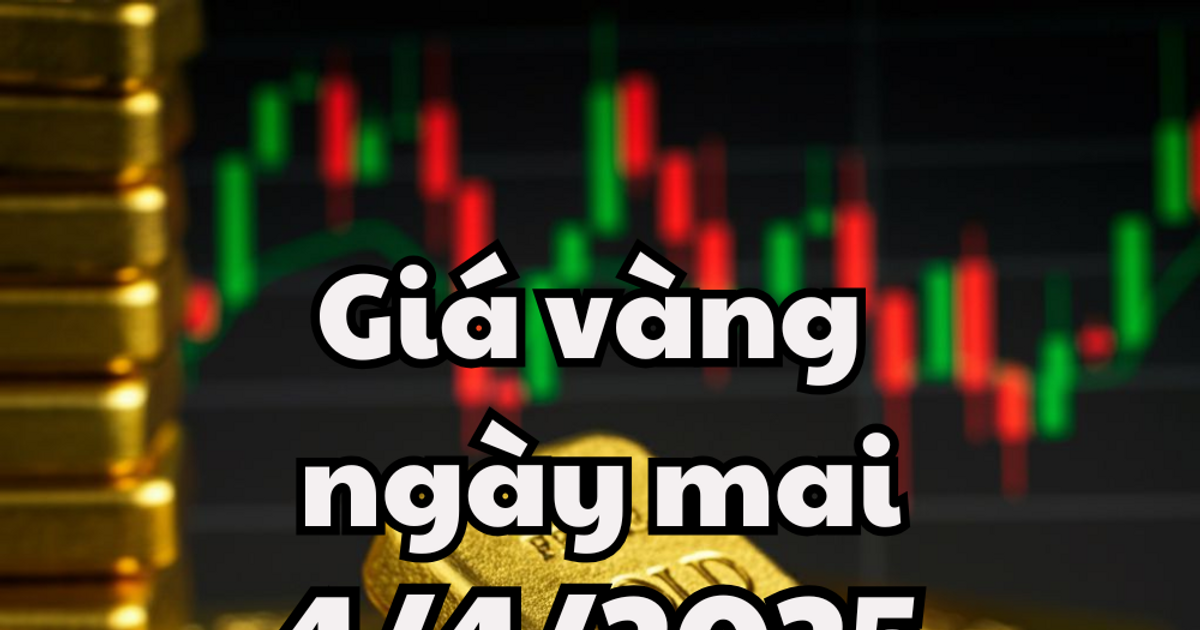

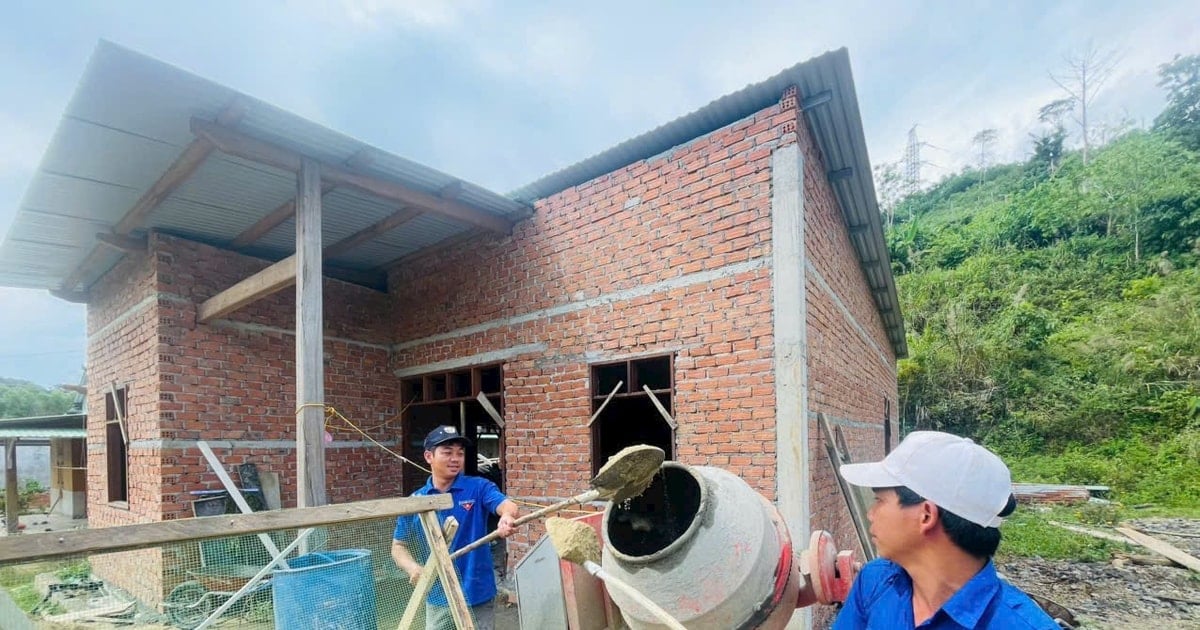
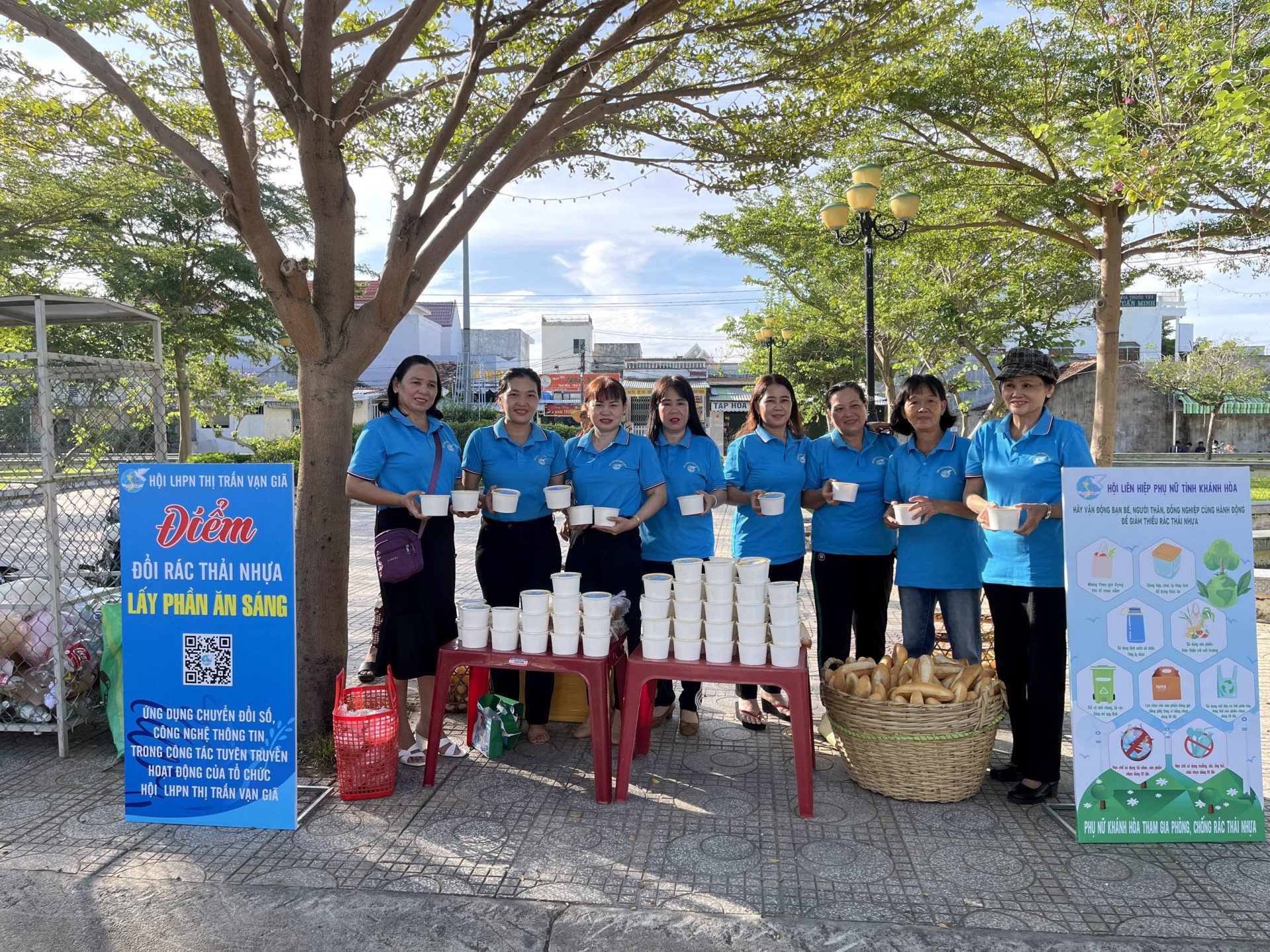

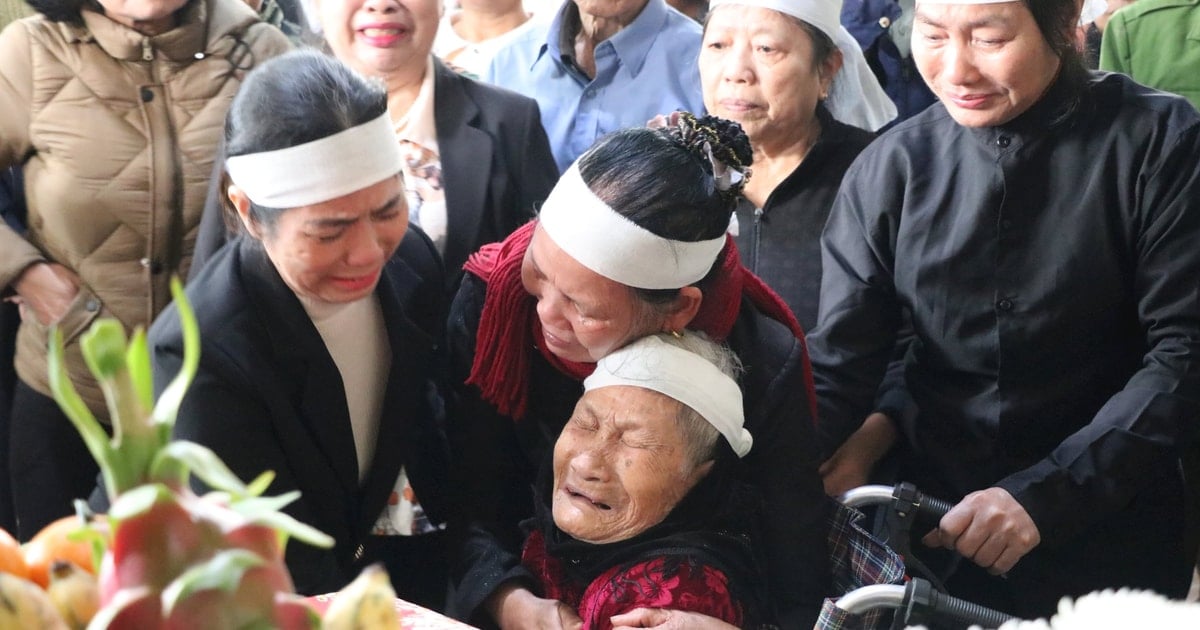


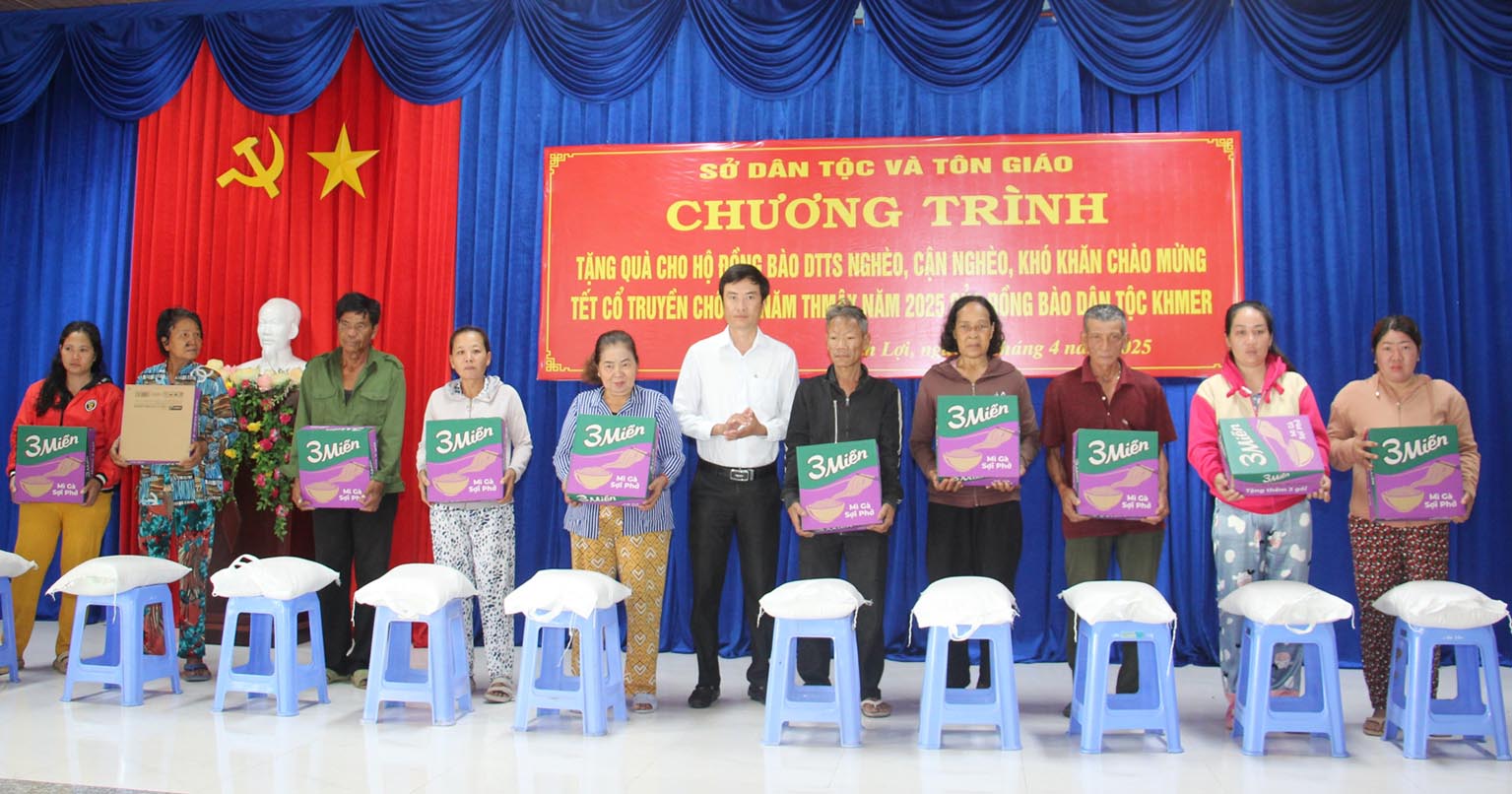











Comment (0)